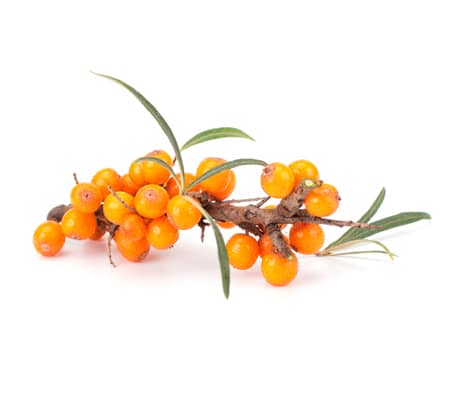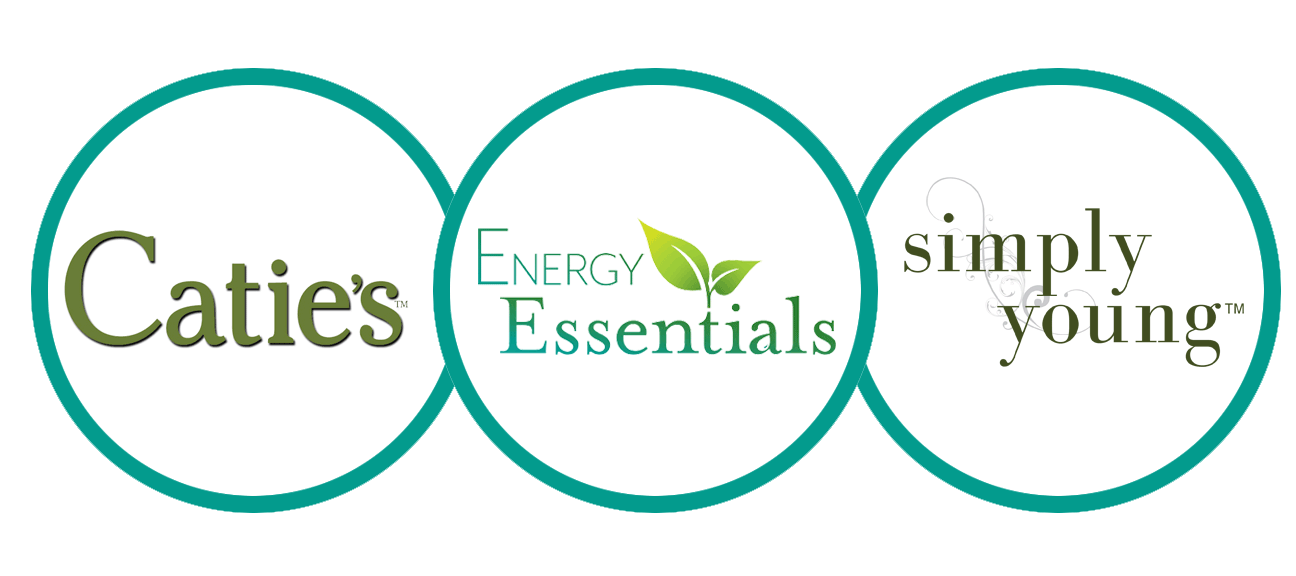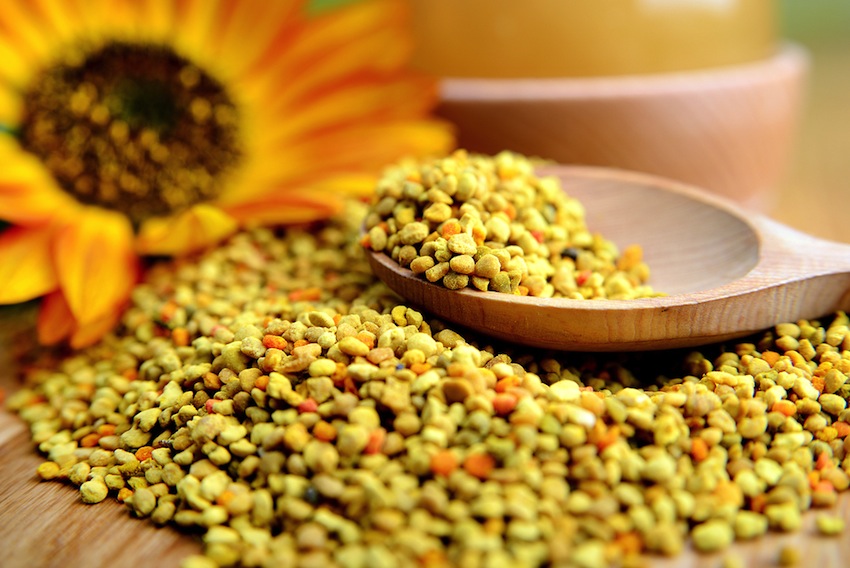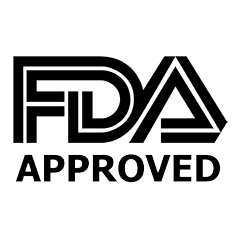Catie's Blog
Sea Buckthorn & Vitamin B12
Vitamin B12 is an essential nutrient that mostly comes from meat, eggs, fish, oysters and dairy products and can be challenging to obtain from plant sources. It helps to keep nerve and blood cells healthy and also helps to create DNA, as well as promote carbohydrate and fat metabolism. Vitamin B12 deficiencies can also be linked to anemia, as B vitamins are essential to the absorption of iron and vice versa. Without adequate iron absorption you can begin to feel tired and fatigued. Vitamin B12 deficiency affects 1.5-15% of the public and though many do get enough from food, some do have problems absorbing it and if you are a vegetarian or vegan, your Vitamin B12 levels can likely be low.
Can you get B12 from plants?
Great question, many say that you cannot get your B12 from plant foods, however, new research done on Hippophae rhamnoides aka. Sea Buckthorn, shows that this special plant may actually be a viable Vitamin B12 host in humans. There are many types of B Vitamins and they are all essential for health, and almost all (if not all) can be found in abundance in plant foods! At the end of this article, we’ll go through all of the B Vitamins, and what plant foods are high in them, but for now, let’s get back to covering B12… Below is an abstract from an experiment conducted on Sea Buckthorn and how it is proven to be a good vegetarian preventative for Vitamin B12 deficiency in vegans and vegetarians!
Abstract
Vitamin B12 is an essential nutrient in human dietary, as it has an important role in promoting carbohydrate and normal fat metabolism, as well as it is essential in the formation of red blood cells, and the normal functioning of the nervous system. Naturally occurring vitamin B12 is only found in animal products such as meat, milk, dairy products, fish, oysters and clams, but it is well-known for its absence in plant-based foods. Therefore, strict vegetarians (vegans) are at higher risk for developing cobalamin deficiency. Due to the need for investigation and accurate determination of vitamin B12 in plant matrices, a HPLC-UV method with a combined purification and concentration step by immunoaffinity column (IAC) was developed. The method demonstrated linear response with r2 > 0.994, with LOD and LOQ values 0.003 μg/ ml and 0.010 μg/ ml, respectively. The validation studies shows very good specificity and accuracy, as well as precision. Actinorhizal plants, such as Hippophae rhamnoides are symbiotic with actinobacteria Frankia Alni, they are potential hosts for vitamin B12. The method was applied in several plant samples, but significant amounts of vitamin B12 were detected only in Hippophaes rhamnoides (37 μg/ 100 g dry weight). These initial findings provide the basis for detection of vitamin B12 also in other plants, and can be a good measure of prevention for the vitamin B12 deficiency in vegetarians.

Vitamin B1 (Thiamin)
Function: converts food to energy, maintains healthy hair, nails, and skin, aids in mental focus and brain function.
Sources: baker’s yeast (active yeast), nutritional yeast (nonactive yeast), coriander, pine nuts, Jerusalem artichokes, hibiscus tea, watermelon, whole grains, acorn squash, soymilk, soybeans, rice bran, wheat germ, sunflower seeds, macadamia nuts (or butter), tahini, sesame seeds, spirulina, green peas, most beans, asparagus.
Vitamin B2 (Riboflavin)
Function: converts food to energy, maintains healthy hair, nails, and skin, aids in mental focus and brain function.
Sources: cereal grasses, whole grains, almonds, sesame seeds, spinach, fortified soy milk, spirulina, mushrooms, beet greens, quinoa, buckwheat, prunes.
Vitamin B3 (Niacin)
Function: converts food to energy, maintains healthy hair, nails, and skin, aids in mental focus and brain function.
Sources: baker’s yeast (active yeast), nutritional yeast (nonactive yeast), coffee, chili powder, spirulina, peanuts, peanut butter, rice bran, mushrooms, barley, durian fruit, potatoes, tomatoes, millet, chia, whole grains, wild rice, buckwheat, green peas, avocados, sunflower seeds, tahini.
Vitamin B5 (Pantothenic Acid)
Function: converts food to energy, maintains healthy hair, nails, and skin, aids in mental focus and brain function.
Sources: baker’s yeast (active yeast), nutritional yeast (nonactive yeast), paprika, mushrooms, sunflower seeds (and sunflower seed butter), whole grains, broccoli, mushrooms, avocados, tomatoes, soy milk, rice bran, sweet potatoes.
Vitamin B6 (Pyridoxine)
Function: aids in maintaining homeostasis, prevents anxiety by helping the amino acid tryptophan convert to niacin and serotonin for healthy nerve function and also helps ensure a healthy sleep cycle, appetite, and mood, red blood cell production, immune function.
Sources: all soy products (choose non-GMO), bananas, watermelon, peanut butter, almonds, sweet potatoes, green peas, avocados, hemp seeds, spirulina, chia seeds, beans, rice bran, chickpeas, prunes, wheat germ, sunflower seeds, pineapple, plantains, hearts of palm, artichokes, water chestnuts, all squash and pumpkin, Brussels sprouts, green beans, pistachios, figs, nutritional yeast, baker’s yeast (active yeast), garlic, sage, peppers, kale, collards.
Vitamin B7 (Biotin)
Function: converts food to energy, helps reduce blood sugar by synthesizing glucose, helps make and break down fatty acids, needed for healthy hair, skin, and nails.
Sources: almonds, chia, peanuts, sweet potatoes, peanut butter, peanuts, onions, oats, tomatoes, carrots, walnuts.
Vitamin B9 (Folate)
Function: merges with Vitamin B12 and Vitamin C to utilize proteins and is essential for healthy brain development and for healthy red blood cell formation, essential for pregnant women to get enough.
Sources: spinach, beans, lentils, asparagus, lettuce, tomatoes, broccoli, avocados, mangoes, oranges, most whole grains, nutritional yeast (nonactive yeast), baker’s yeast (active yeast), basil, soy products, peanuts, artichokes, cantaloupe, walnuts, flax, sesame, cauliflower, tahini, sunflower seeds, peas, okra, celery, hazelnuts, mint, leeks, chestnuts.
Vitamin B12 (Cobalamin)
Function: red blood cell production, needed for optimal brain function to prevent depression and mania, aids in digestion, improves iron uptake, critical for all aspects of health.
Sources: sea buckthorn, spirulina, nutritional yeast, soy products, some vegan protein powders.

How can you make sure you are getting enough B Vitamins?
It can be hard to know if you are getting all that you need on a micro nutrient level, especially with vitamin group that has such variety as B Vitamins. Catie’s B-Complex is an incredible B Vitamin formula that is completely made of whole plant foods and contains the entire spectrum of Vitamin B1-B17! Including Vitamin B12! Catie’s B-Complex also contains plant Iron, and like we said above, iron is actually a co-factor of Vitamin B12 and acts as a catalyst to help it absorb into the body.
We hope you enjoyed this post! If so, please comment below!




